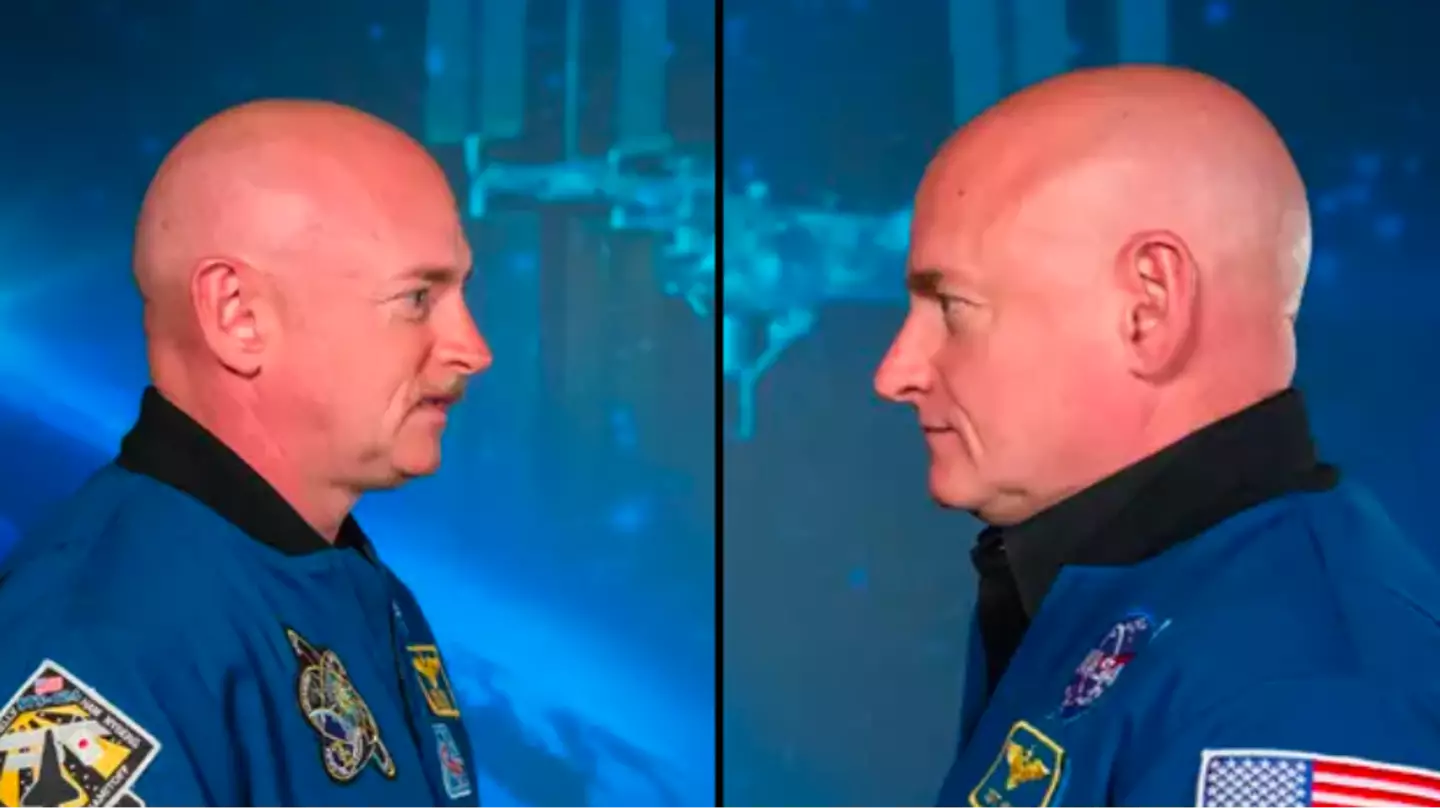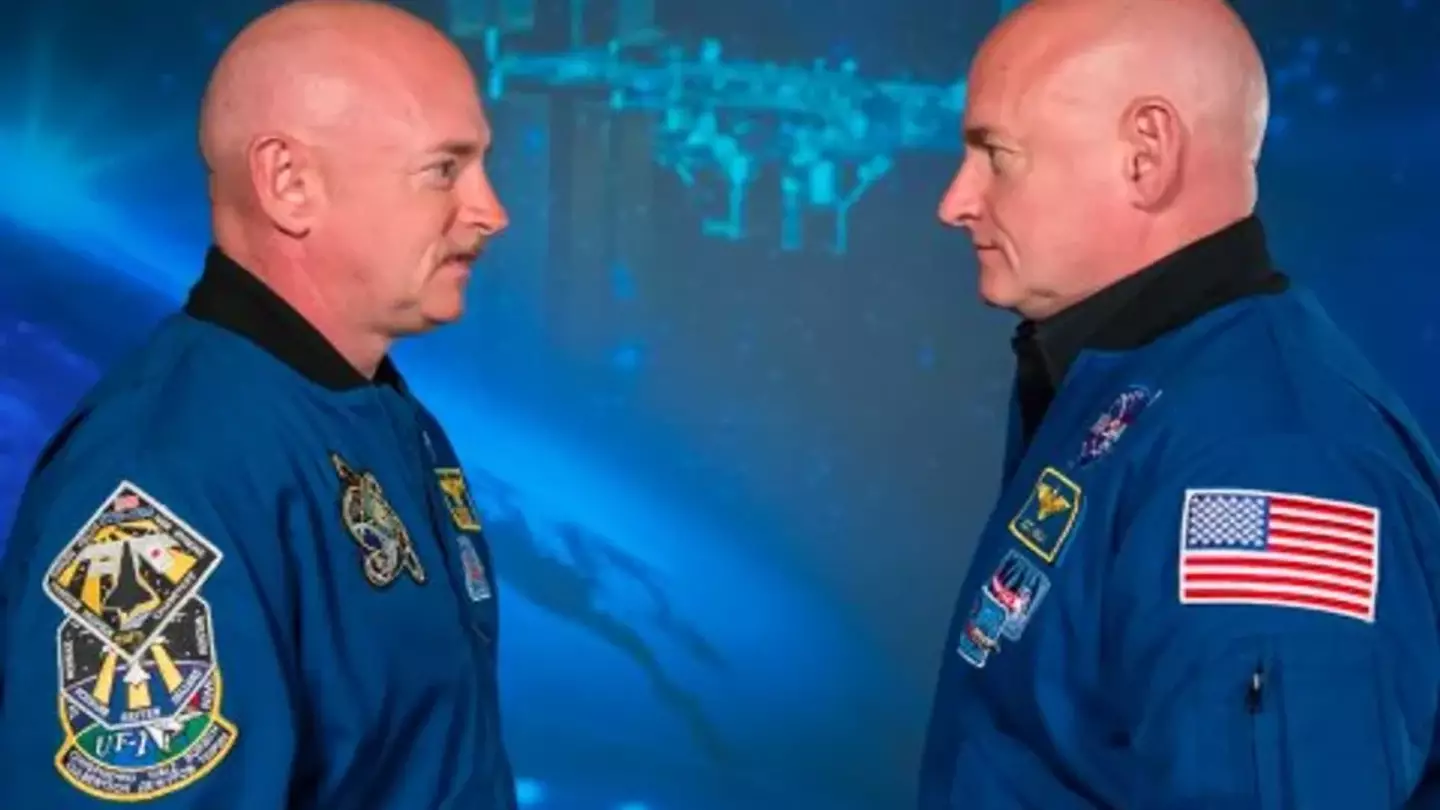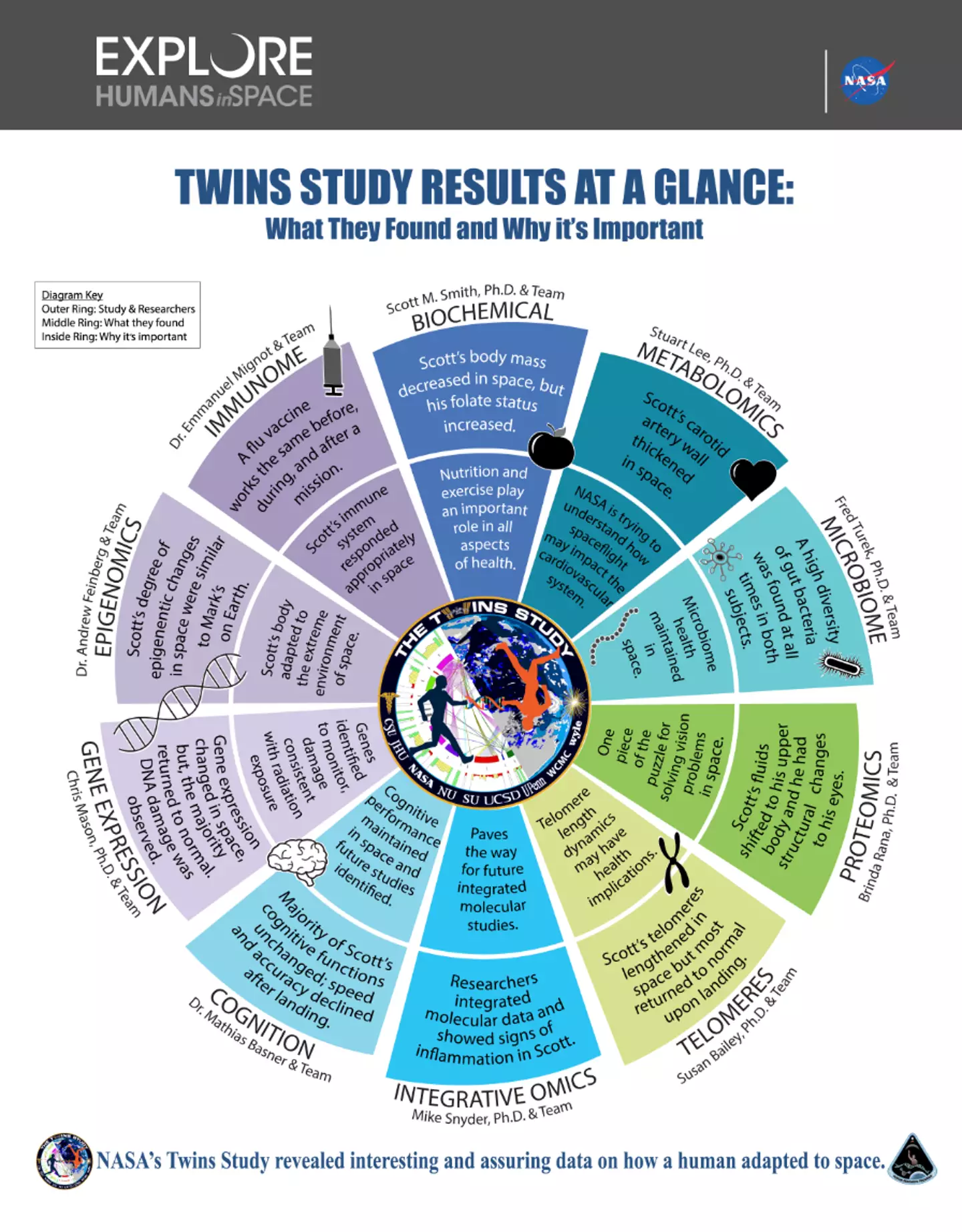
NASA once sent an identical twin into space - leaving his twin behind on Earth - for a year to see how it would change him. Clever, eh?
Astronauts Scott and Mark Kelly are identical twins from the US and in March 2015, they took part in a year-long mission which would see Scott blasted off into space, while Mark stayed put on Earth. I wonder how they decided who got to go where?
Scott set off for the International Space Station on 27 March 2015 and wouldn’t return until 1 March the following year. Once back on planet Earth, researchers studied different aspects of the twins’ health and biology, covering just about everything from cognitive function to gut bacteria.
According to a report from NASA, one of the more ‘striking discoveries’ from the study was that Scott’s telomeres - the caps at the end of chromosomes - got longer than Mark’s while he was in space. But they quickly returned to their normal length once he landed back on Earth.
Advert
Apparently that was ‘exactly the opposite’ of what the scientists involved thought would happen, as shorter telomeres are usually linked to ageing.

NASA researchers also discovered that the men had different gut bacteria throughout the study - but said this could be attributed to the different diets and environments they were experiencing.
Scott's methylation levels, a process by which methyl groups are added to the DNA molecule, effectively changing the activity of a DNA segment, were also found to be lower in his white blood cells, whereas Mark's increased.
"These results could indicate genes that are more sensitive to a changing environment whether on Earth or in space," according to NASA.
Advert
Researchers found more than 200,000 RNA molecules that differed in Scott and Mark, meaning that scientists are 'looking closer to see if a 'space gene' could have been activated while Scott was in space'.

When it came to cognition, Scott’s performance was largely unchanged and was relative to Mark. Although this might not sound like an important discovery, NASA scientists said it was useful as it suggested that astronauts ‘can maintain high levels of cognitive performance for longer durations in space’.
Speaking to space.com about the experiment, Scott said: “The bottom line is, from all these studies — and, granted, this is an experiment with one data point… would be that there's nothing that we saw that would prevent us from going to Mars.
"Certainly, there's some stuff that they're going to continue to look at - gene expression, telomeres, other issues astronauts have with their vision, but no showstoppers that jumped out at anyone."
Topics: NASA, Science, Environment, Space, US News